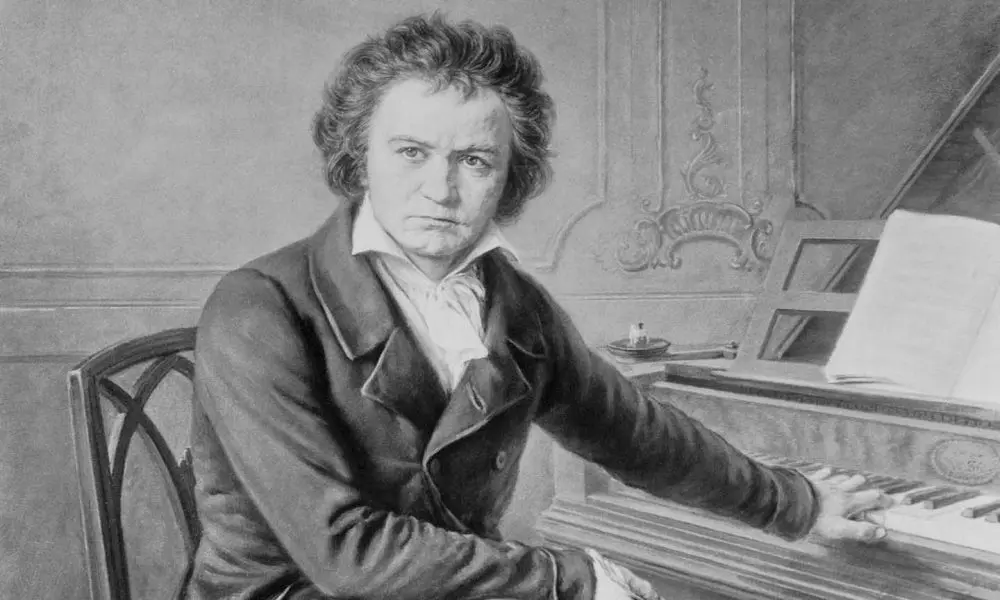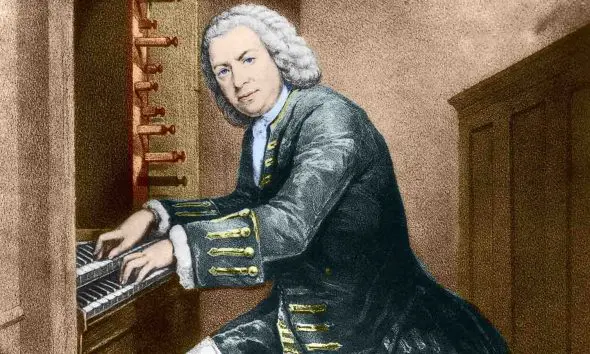Beethoven’s ‘Moonlight’ Piano Sonata: Masterpiece Guide
Discover the story behind Beethoven’s ‘Moonlight’ Sonata which is one of the most famous pieces of piano music.

Beethoven‘s ‘Moonlight’ Sonata (aka ‘Piano Sonata No.14 in C sharp minor Op.27/2’) is one of the most famous pieces of music ever written for the piano. But how did it acquire its famous nickname – and where have you heard it before? Our masterpiece guide to Beethoven’s ‘Moonlight’ Sonata has the answers, plus more on the work’s background.
Why the name?
That title, naturally, is probably not Beethoven’s. The coiner of the sticky ‘moonlight’ label, so to speak, is supposed to have been the poet and music critic Ludwig Rellstab, who remarked in 1836 that the first movement reminded him of moonlight on Lake Lucerne, Switzerland.
The nickname has done the sonata few favors, masking – maybe belittling – its groundbreaking nature and emotional power. Its heading ‘Sonata Quasi Una Fantasia’ (shared with its sister sonata, Op.27 No.1) releases Beethoven from any expectations of traditional form.
Need to know
Beethoven composed the sonata in 1801 and dedicated it to one of his pupils, Countess Giulietta Guicciardi – once thought to have been Beethoven’s mysterious ‘Immortal Beloved’ (though now the musicological finger points more strongly towards Antonie Brentano).
The first, hypnotic, movement is the most well-known; the dotted rhythm of its minimal melody evokes the tradition of ‘Trauermusik’ (funeral music). Beethoven’s ‘Moonlight’ Sonata dates from the year before the so-called Heiligenstadt Testament, the document in which Beethoven described to his brother the devastating impact of his deafness.
Some associate the introspective, funereal quality of this music with Beethoven’s state of mind as he faced the onset of this cruel malady. There seems, though, little limit to the theories on this sonata that abound; there may yet be further surprises in store.
Murray Perahia noted, “A few of the emotions, the pain of that first movement I think is becoming manifest in many of his works. Also, it might be the oncoming of the deafness, it might be the ‘Immortal Beloved’ – knowing that that love, like the loves of Romeo and Juliet, would never be lived. That might have prefigured this emotionally.”
Where have I heard it before?
The work’s exceptional popularity dates back to Beethoven’s own day. He even commented in a letter that its runaway success puzzled him; he was sure he had written better pieces than this. Yet its appeal has never dimmed. The nature of the music, so strongly defined, speaks its message to every age.
The use of Beethoven’s ‘Moonlight’ Sonata in film has helped to keep it in the public gaze; Persuasion, Interview With The Vampire, Rosa Luxembourg, The Pianist, Love Story, and even Sid And Nancy (about Sid Vicious of The Sex Pistols) are just a few of the many movies that include a dose of moonlight.
Can I play it?
At the piano, I’ve found Beethoven’s ‘Moonlight’ Sonata difficult to play, but not always in the way one might expect. The final movement, with its furious outbursts, sounds like the hardest; more difficult, though, is to balance the texture and the melody of the opening movement, to maintain the evenness of tone, and to create the appropriate atmosphere. Its unusual pedaling indication – that the entire movement should be played without once damping the sustaining pedal – can create occasional havoc as modern pianists explore ways to evoke this effect on a very different instrument from Beethoven’s own.
Recommended Recording
Murray Perahia’s Beethoven: Piano Sonatas op. 106 ‘Hammerklavier’ & op. 27/2 ‘Moonlight’
Gramophone noted, “Murray Perahia, one of today’s very finest pianists, brings intelligence, grace and virtuosity to these most well-known of sonatas – a superb recording of real drama and beauty …Murray Perahia on formidable form …with interpretations that stand among the finest available …musically remarkable and, in terms of its exploration of the composer’s tempest-tossed inner life, extraordinarily fascinating addition to the Beethoven discography.”




